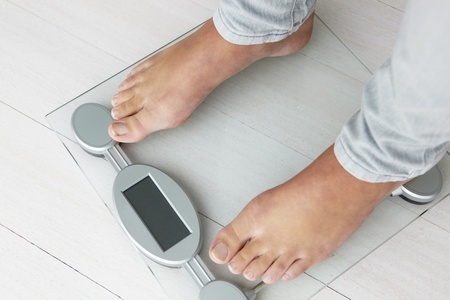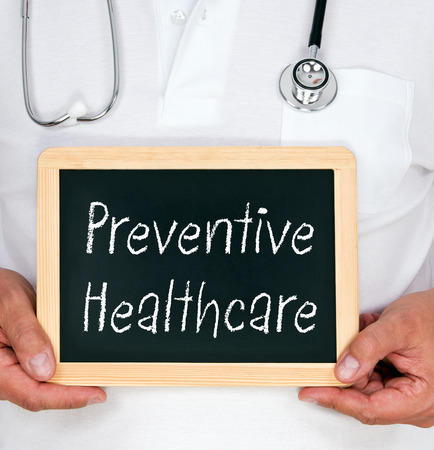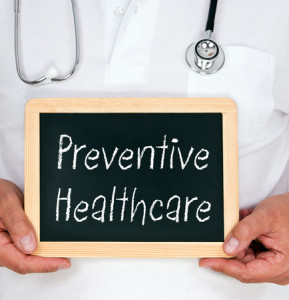The power of positive thinking
 You may have heard that positive people live longer. They also tend to experience higher levels of happiness and less stress. But if you tend to see the glass as half empty instead of half full, can you still reap the benefits of positive thinking?
You may have heard that positive people live longer. They also tend to experience higher levels of happiness and less stress. But if you tend to see the glass as half empty instead of half full, can you still reap the benefits of positive thinking?
Research suggests the answer is a resounding yes. Here are three simple yet effective ways to start reaping the benefits of positive thinking:
Meditation — Research shows that those who meditate daily display more positive emotions that those who don’t. And we’re not talking about saying ‘om’ for an hour. Even just a few minutes of meditation a day can help you dramatically boost your mood and facilitate positive thinking. The best part? Meditation is a simple thing to do — click here to get started — and doesn’t require any special equipment or a gym membership!
Writing — Keeping a journal is a great way to reflect on pleasant memories and work through not-so-pleasant experiences, all of which can elevate your mood.
Play — All work and no play is boring — not to mention hazardous to your health. When was the last time you intentionally carved out time to have fun? It could be playing with your dog or watching your favorite show with a partner. There is even research that shows people who make time for themselves are much more positive and productive in their jobs!



 Ever heard of the “Freshman 15”? It refers to the amount of weight gain by young adults during their first year of college. It’s also referred to as the “Freshman 10.”
Ever heard of the “Freshman 15”? It refers to the amount of weight gain by young adults during their first year of college. It’s also referred to as the “Freshman 10.”
 Friendships aren’t just fun, they’re actually good for us. Here are three reasons why:
Friendships aren’t just fun, they’re actually good for us. Here are three reasons why:
 Your vacation has been planned for months. Your business trip has been on the schedule for weeks. You don’t have time to be sick! Next time, you will make sure this doesn’t happen. You will be a healthy traveler! Here’s how:
Your vacation has been planned for months. Your business trip has been on the schedule for weeks. You don’t have time to be sick! Next time, you will make sure this doesn’t happen. You will be a healthy traveler! Here’s how:
 Health plans today typically offer a variety of preventive care benefits. However, it’s estimated that only half of all Americans take advantage of preventive healthcare. Many people are simply too busy or don’t realize they have some important health screenings available at no cost to them.
Health plans today typically offer a variety of preventive care benefits. However, it’s estimated that only half of all Americans take advantage of preventive healthcare. Many people are simply too busy or don’t realize they have some important health screenings available at no cost to them.
 Hitting the gym or strolling around the park is obviously a great way to burn calories, but the additional benefits of a regular exercise routine often go overlooked. Are you aware of all the positive things a good workout can do for your body and your health?
Hitting the gym or strolling around the park is obviously a great way to burn calories, but the additional benefits of a regular exercise routine often go overlooked. Are you aware of all the positive things a good workout can do for your body and your health?
 When you’re shopping for a health insurance plan, it’s easy to get confused by all the terminology. Here’s a guide to four of the most important health insurance terms that you need to know:
When you’re shopping for a health insurance plan, it’s easy to get confused by all the terminology. Here’s a guide to four of the most important health insurance terms that you need to know:
 How savvy are you about portion sizes? Over the past 10 years, portion sizes in the United States have grown increasingly out of whack, and most people vastly overestimate how much they should eat at each meal. Consider this:
How savvy are you about portion sizes? Over the past 10 years, portion sizes in the United States have grown increasingly out of whack, and most people vastly overestimate how much they should eat at each meal. Consider this:
 Have you named someone who could make health care decisions on your behalf if you are unable to? It’s important to name a health care agent —also known as a proxy or surrogate decision-maker — while you are still healthy. A health care agent is someone who you trust to make difficult decisions about your health care based on your wishes should you face a sudden life-threatening illness or injury. Selecting someone who understands your wishes and can make health care decisions on your behalf in the event you are unable to express your preferences about medical treatment yourself is vital. You’ll want someone you can trust who will do what you ask, even if differs from what they would do themselves or if they don’t think it’s the right thing to do.
Have you named someone who could make health care decisions on your behalf if you are unable to? It’s important to name a health care agent —also known as a proxy or surrogate decision-maker — while you are still healthy. A health care agent is someone who you trust to make difficult decisions about your health care based on your wishes should you face a sudden life-threatening illness or injury. Selecting someone who understands your wishes and can make health care decisions on your behalf in the event you are unable to express your preferences about medical treatment yourself is vital. You’ll want someone you can trust who will do what you ask, even if differs from what they would do themselves or if they don’t think it’s the right thing to do.
 Getting married? Becoming a parent? Turning 26 and no longer covered under a parent’s health insurance plan? Getting divorced? Losing your job and health insurance coverage? Big changes in your life can provide you with an important opportunity to make changes to your existing plan or purchase a new one outside of the open enrollment period that starts in November.
Getting married? Becoming a parent? Turning 26 and no longer covered under a parent’s health insurance plan? Getting divorced? Losing your job and health insurance coverage? Big changes in your life can provide you with an important opportunity to make changes to your existing plan or purchase a new one outside of the open enrollment period that starts in November.